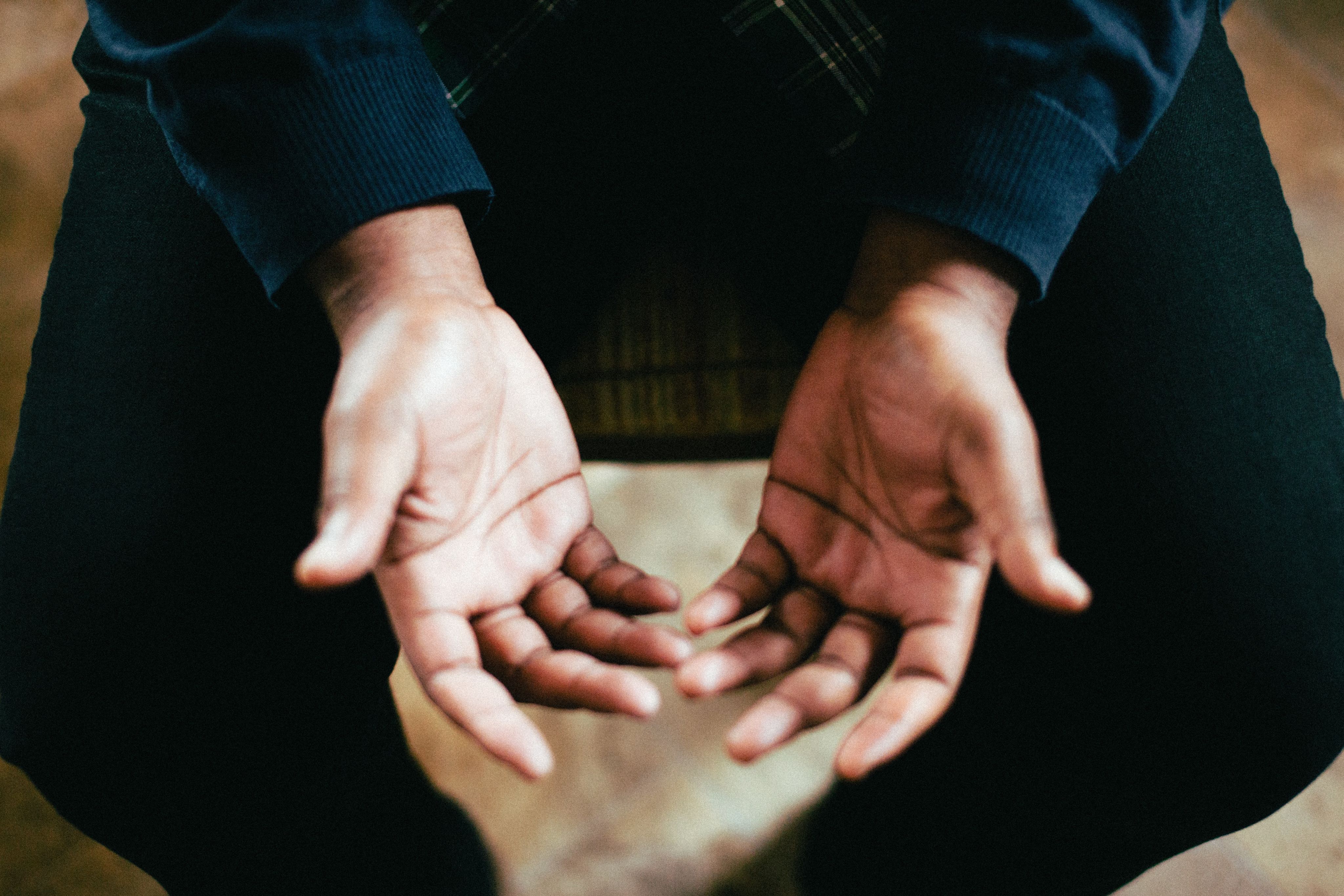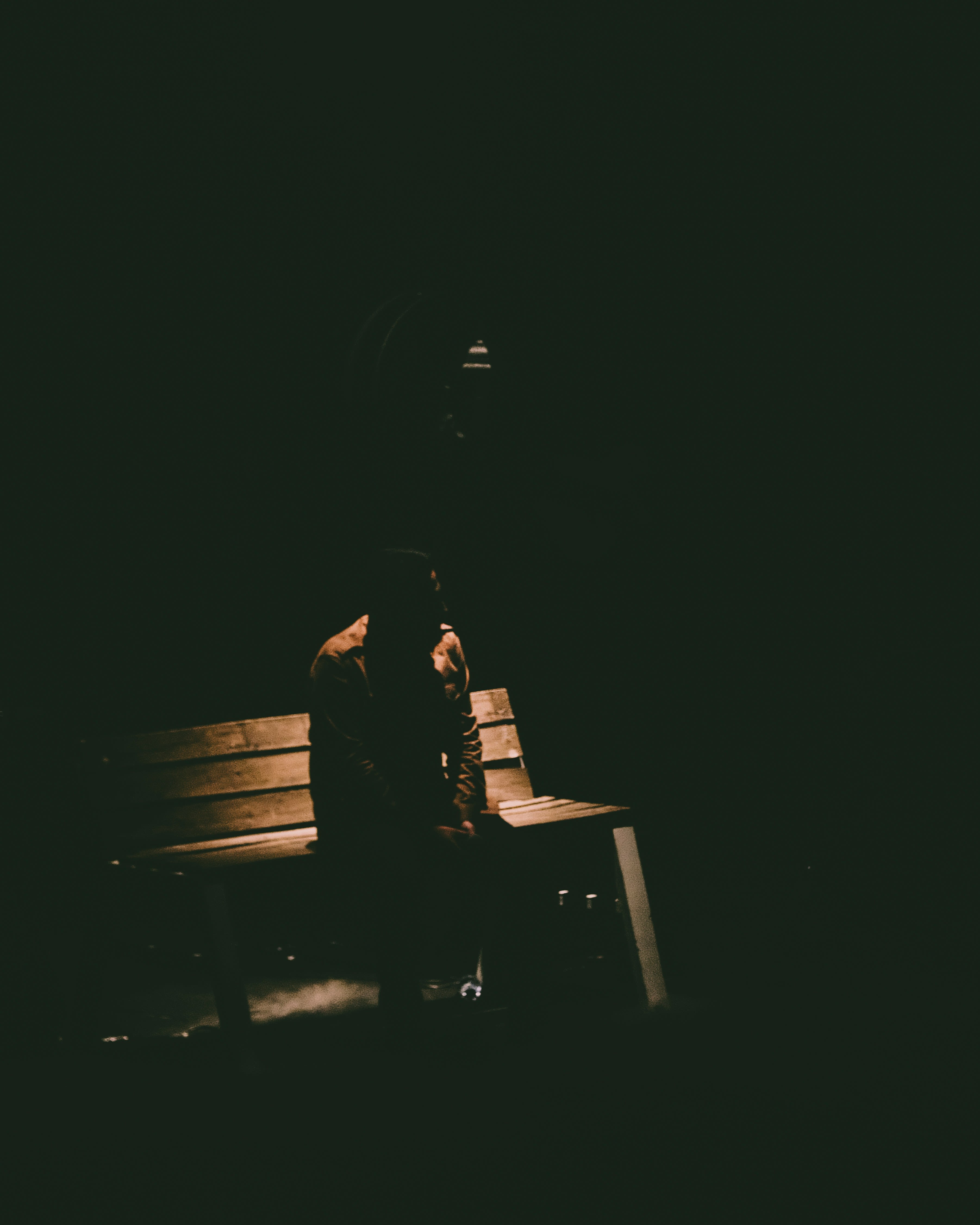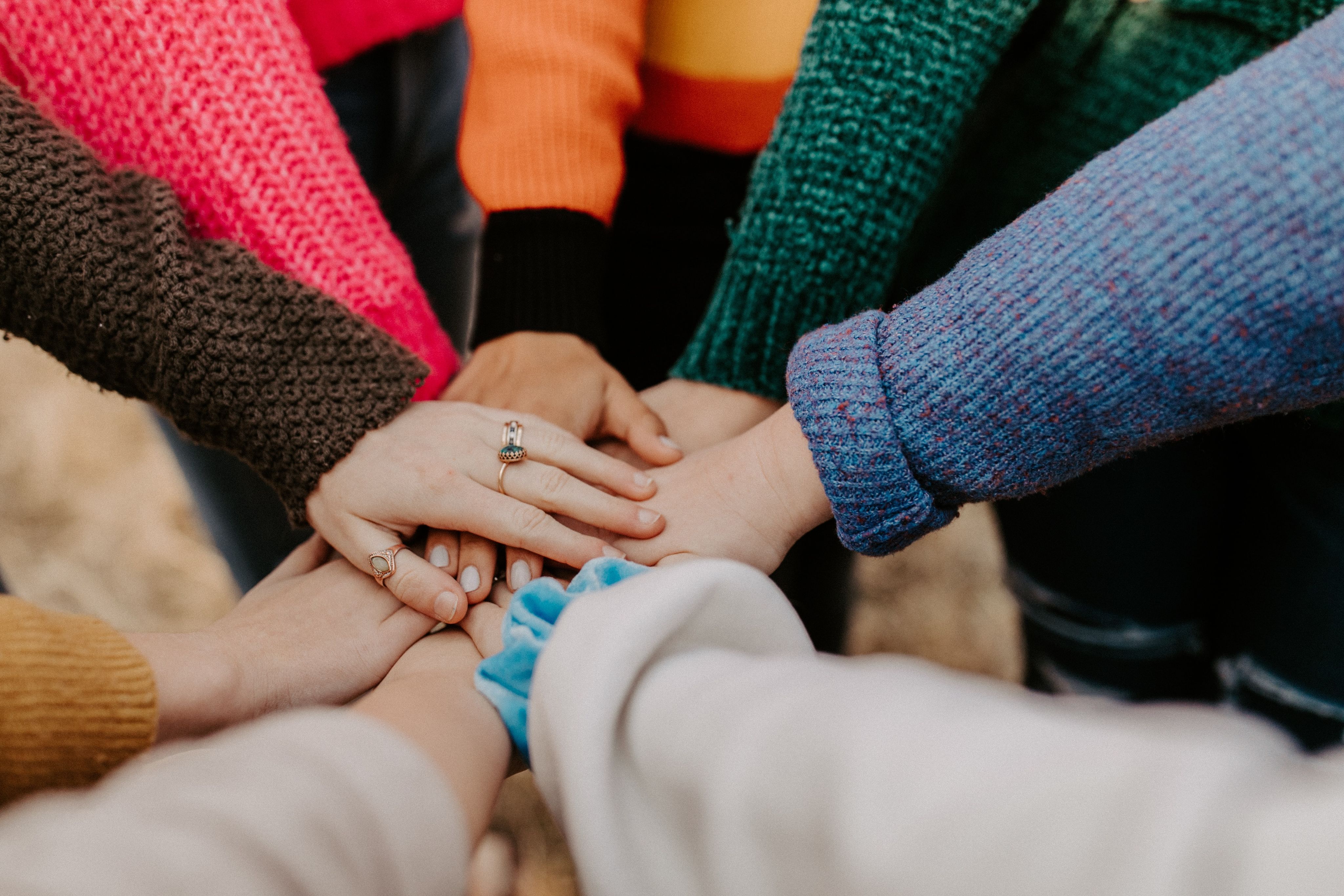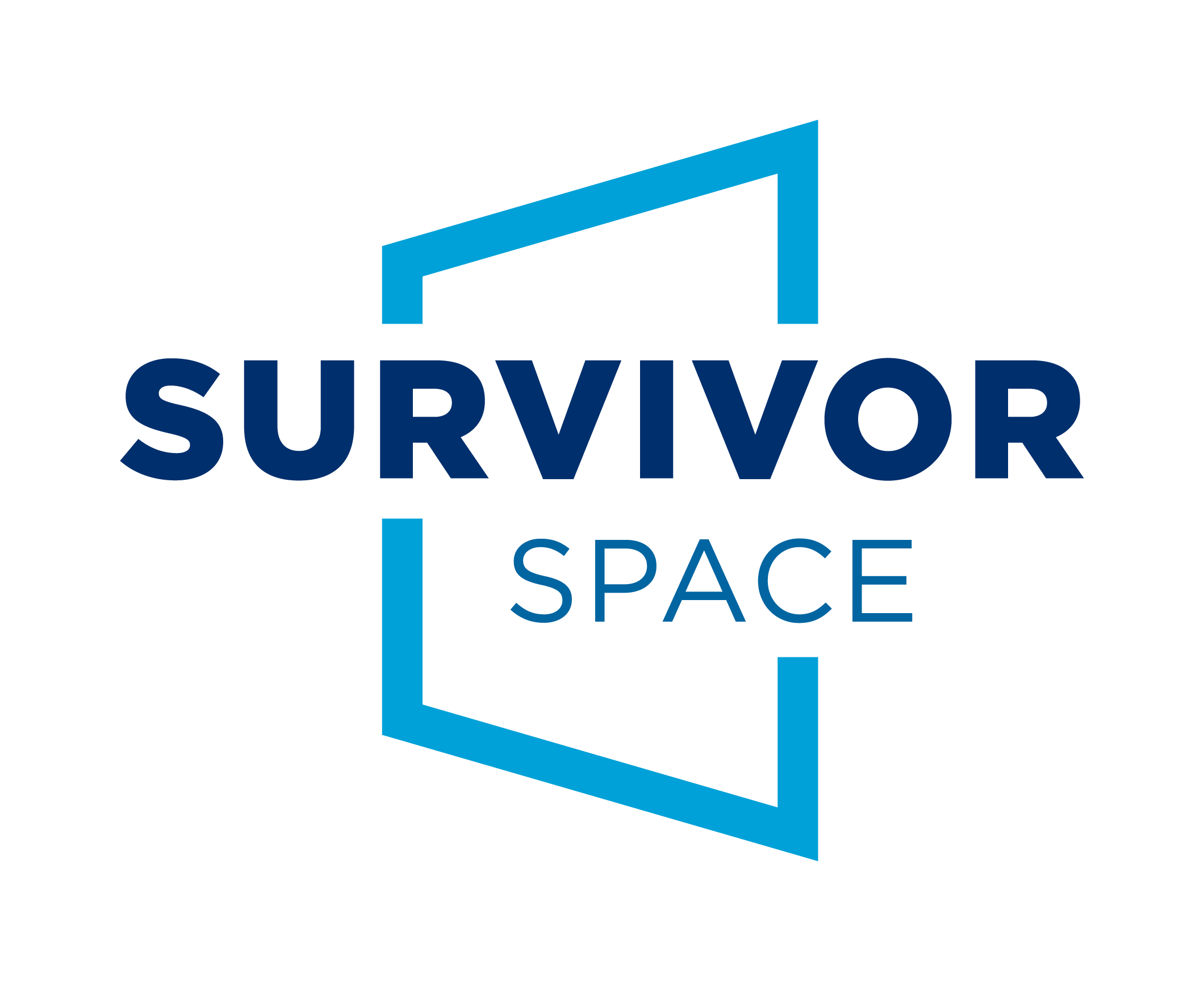Empowering Survivors:
How Religion and Spirituality May Foster Healing and Support

As a survivor, I have often faced immense challenges in my healing journey. I have desired a supportive environment that not only addresses my psychological needs but also nurtures my spiritual and emotional well-being. I have often grappled with deep-seated fears surrounding both religion and spirituality. These fears are complex and multifaceted, profoundly influencing my engagement with religious or spiritual practices. Understanding these concerns is crucial for providing compassionate support and fostering environments conducive to healing.
Religion and spirituality are terms often used interchangeably, yet they encompass distinct aspects of human experience and belief systems. Understanding their differences and similarities can provide a clearer insight into their roles in individuals’ healing journey and lives.
Religion: typically refers to an organized system of beliefs, practices, rituals, and symbols designed to facilitate closeness to the sacred or divine. It often involves a community of believers who adhere to a specific doctrine, worship in formal settings, and follow a recognized authority or scripture.
Spirituality: is a more individualized and personal practice that seeks to find a sense of peace, purpose, and connection to something greater than oneself. It does not necessarily adhere to a particular doctrine and can be practiced outside the confines of organized religion.
Key Similarities between Religion and Spirituality
- Search for Meaning: Both religion and spirituality aim to provide answers to fundamental questions about existence, purpose, and the nature of the universe.
- Experience of the Sacred: Both involve a sense of connection to something greater than the individual self, whether it is God, the Universe, a Higher Power, or anyway the person wants to reference it.
- Ethical and Moral Framework: Both often provide guidelines for how to live a meaningful and morally upright life, though the specifics of these guidelines can vary widely.
Key Differences
- Structure and Organization:
Religion: Highly structured with established doctrines, rituals, and communal practices.
Spirituality: More fluid and individualistic. Practices can include meditation, yoga, contemplation, and personal reflection without formalized rituals.
2. Community vs. Individual:
Religion: Emphasizes communal worship and the collective aspect of faith. Believers often gather in churches, mosques, temples, or other places of worship.
Spirituality: Focuses on individual experiences and personal growth. Spiritual practices are often conducted alone or in small, informal groups.
3. Authority and Doctrine:
Religion: Adheres to specific scriptures, teachings, and traditions. There is often a hierarchical structure of authority, such as priests, imams, or monks.
Spirituality: Lacks a formalized structure and is open to personal interpretation. Authority is often derived from personal experiences and inner wisdom rather than external sources.
4. Inclusivity and Flexibility:
Religion: Can be exclusive, with membership often requiring adherence to specific beliefs and practices. Conversion processes are usually formal.
Spirituality: More inclusive and flexible, allowing individuals to draw from various religious, philosophical, and personal experiences to shape their spiritual path.
While religion and spirituality share common ground in their quest for deeper meaning and connection, they diverge significantly in their approach and practice. Religion offers a structured path with communal support and shared rituals, whereas spirituality allows for a more personal and individualized exploration of the sacred. Both play vital roles in human culture and personal well-being, offering diverse pathways to understanding and experiencing the profound aspects of life.
As a survivor, I melded these two terms into one fearful overarching concept. These fears may have influenced my willingness and ability to engage with religious or spiritual practices and may have hampered my healing journey.

FEARS ASSOCIATED WITH RELIGION
Fear of Judgment and Condemnation
Many survivors of abuse within religious settings fear judgment and condemnation from religious authorities and communities. These individuals may have been subjected to teachings that blame victims or emphasize punishment. Additionally, there is a profound fear that religious doctrines might be interpreted in ways that further traumatize or exclude them, particularly in conservative or dogmatic environments.
Fear of Hypocrisy and Betrayal
Survivors of clergy abuse often develop a deep mistrust of religious leaders and institutions, feeling betrayed by those who were supposed to provide guidance and protection. Witnessing or experiencing hypocrisy within religious communities can lead to a general distrust of organized religion. The broken trust creates a significant barrier to re-engaging with religious communities.
Fear of Coercion and Loss of Autonomy
Individuals who have experienced manipulative or coercive religious groups fear losing their autonomy and being controlled by religious authorities or group thinking. The anxiety about being pressured to conform to specific beliefs or practices that do not resonate with their personal experiences or values can be overwhelming.
FEARS ASSOCIATED WITH SPIRITUALITY
Fear of Vulnerability
Engaging in spiritual practices such as meditation or introspection can bring unresolved trauma to the surface, making individuals feel vulnerable and exposed. The process of spiritual awakening or healing can sometimes be overwhelming, causing fear of not being able to cope with intense emotions.
Fear of Isolation
Unlike organized religion, spirituality is often pursued individually, which can lead to feelings of isolation or loneliness, especially for those who crave community support. There is also the fear that others may not understand or respect their spiritual journey, leading to social stigma or marginalization.
Fear of the Unknown
Spiritual exploration can prompt deep existential questions that might be unsettling or frightening, particularly for those grappling with past traumas. The lack of structured guidance in spirituality can create anxiety about whether one is “doing it right” or if their practices are effective.

Photo by Sam Moghadam Khamseh on Unsplash
Photo by Sam Moghadam Khamseh on Unsplash
ADDRESSING THESE FEARS
Creating Safe Spaces
Providing non-judgmental environments where survivors feel safe to express their doubts, fears, and experiences without judgment is crucial. Religious and spiritual leaders should be trained in trauma-informed approaches to offer compassionate and sensitive support.
Empowering Autonomy
Emphasizing the importance of personal choice and consent in religious and spiritual practices can help survivors regain a sense of control. Encouraging survivors to explore various paths and find what resonates with them can foster empowerment and personal growth.
Building Trust Gradually
Providing consistent, reliable support can help rebuild trust in religious or spiritual frameworks. Maintaining transparency and accountability within religious institutions is essential to prevent and address any abuses of power.
Community and Connection
Fostering inclusive and supportive communities can help alleviate fears of isolation and provide a network of understanding peers. Encouraging interfaith dialogue and secular support groups can offer diverse perspectives and reduce feelings of alienation.

The path to healing in the realms of religion and spirituality is often fraught with fears stemming from past traumas and negative experiences. Recognizing and addressing these fears with sensitivity and compassion is essential in helping survivors find a sense of peace, purpose, and connection, whether within organized religion, personal spirituality, or a blend of both. By creating supportive environments and respecting individual journeys, we can help survivors navigate their spiritual paths with greater confidence and comfort.
Survivors often carry complex emotions and deep-seated apprehensions that influence their engagement with religious and spiritual practices. By creating safe, non-judgmental spaces, empowering personal autonomy, building trust gradually, and fostering inclusive communities, we can support survivors on their journey to healing.
Religious and spiritual leaders, as well as supportive communities, play a crucial role in this process. They can offer compassionate, trauma-informed care that respects everyone’s unique experiences and paths. Whether within the structure of organized religion, the personal realm of spirituality, or a blend of both, providing understanding and flexible support helps survivors reconnect with a sense of peace, purpose, and connection to something greater than themselves.
While religious settings can sometimes make survivors feel like outsiders due to rigid doctrines or judgmental attitudes, spirituality can cause a feeling of separation and loneliness, which may cause survivors to continue carrying the essence of alienation and mistrust. I wanted to hear from the organizations and studies themselves and share their perspective. However, I was not prepared for the resistance and hesitations from many organizations. I extended the response deadlines twice. I wondered why?
Many religious and spiritual organizations often hesitate to engage in interviews or articles due to concerns about preserving the integrity of their teachings and maintaining control over their messaging. They fear misrepresentation or oversimplification of their complex beliefs, which could lead to misunderstandings. Additionally, many teachings are considered sacred and meant only for the initiated, thus not suited for casual public dissemination. Historical persecution and cultural sensitivities also play a role, leading to a cautious approach in public engagements.
Strategic considerations further influence their silence. Organizations aim to avoid controversy and focus on internal spiritual growth rather than public relations. Limited resources and expertise in media engagement can also restrict their participation. Ethical and doctrinal stances, such as a philosophy of non-engagement with the secular world or a value placed on silence, reinforce their reluctance. Legal and political concerns, especially in regions with restricted religious freedom, add another layer to their cautious stance.
I was amazed at how many declined or did not respond. However, Isaac and Hannah Surh with Chrome Columbus (OH), Jesse Bradley with Grace Community Church (WA), Dale Lykins with The Open Table (OH), and Susan Michael with A Course in Miracles (NY), offered valuable responses.
Chroma Columbus is a new multiethnic, multi-generational church in Dublin, Ohio that has a passion for justice and the gospel. Chroma was planted three years ago by Isaac and Hannah Surh with the SEND Network. Chroma’s mission is to help people discover their true colors—their identity, purpose, and community—in the light of Christ.”
Grace Community Church is a multigenerational and multiethnic church family in Seattle, Washington. We connect with people of all nations through our live streaming ministry. We have been serving locally and globally for over 70 years.
The Open Table began out of a desire to create safe space beyond institutional expressions of faith where everyone, no matter where they are on their own journey can find affirming community. We are a network of queer folks, allies, survivors of religious trauma, and justice seekers. We get real about our stories, our doubts, our questions, and our struggles. We accept each other and share acts of Love in the world.
A Course in Miracles (ACIM) is a self-study spiritual program that empowers individuals to find healing and support within themselves. By focusing on inner transformation and the principles of forgiveness and self-love, it provides survivors with tools to navigate their healing journey independently, fostering a sense of empowerment and self-reliance.

Photo by Billy Pasco on Unsplash
Photo by Billy Pasco on Unsplash
I focused on the following areas and let their voices speak for themselves. Responders were free to answer questions how they saw fit, alter any questions to fit their needs (alterations are indicated), and omit any questions.
Support Services and Programs: Assisting Survivors
Navigating the aftermath of trauma, abuse, and other hardships can be an overwhelming and isolating experience. For many survivors, finding a supportive and understanding community is essential for healing and recovery.
What specific support services and programs does your institute offer to survivors of trauma, abuse, or other hardships?
Isaac Surh: “Chroma Church does not have any programs or ministries focused specifically on trauma or abuse, but we do offer weekly small groups, pastoral counseling, and prayer for anyone who needs it. Several of our members have experienced trauma and abuse and are finding support and healing through these ministries.”
Jesse Bradley: “We [Grace Community Church] have a Good Samaritan fund, and we provide for people who need help with finances and support. We also pay for counseling too. We partner with local counselors who are excellent and trustworthy. We also have a care team that connects with compassion. We have a human trafficking ministry. There's a couple at our church who lead this restorative outreach. We have a compassion clinic with physicians, dentists, and physical therapists.”
Dale Lykins: “Most people who connect with The Open Table are dealing with trauma in some form (or multiple forms). Those who are LGBTQ+ have often been traumatized by family members who have rejected them due to religious views that define LGBTQ people as abominations and sinful. Most have endured some kind of religious trauma. They have been told what to think and believe and how to act. In some way they have been required to give up their own autonomy and agency for the will of the leader (pastor often). The support we give is a completely safe space to begin the healing from past abusive and traumatic experiences. We create a culture where being honest is encouraged. The ability to share your doubts and your questions are welcomed. There is no judgement. We get real.”
Susan Michel: “ACIM [A Course in Miracles] is a self-study program. It teaches us that the Source of our healing is within. Instead of relying on external answers or validation, it allows us to access our own inner guidance system. That guidance system is based on love and forgiveness. ACIM stresses that our darkness (internal pain) must come to the light before healing can occur. We need to acknowledge, identify, and face the feeling that the abuse triggered in us. Then, through strength and clarity, we must choose to release our grievances and forgive. This is how we access our true power. "

Can you provide examples of how these services have made a difference in individuals' lives?
Issac Surh: “One member has struggled with deep emotional trauma for years stemming from an abusive relationship with his mother. After receiving pastoral counseling for several months and attending a healing retreat, he has experienced a breakthrough which has led to the beginning of a reconciliation process with his mother and healing of the emotional pain he has been carrying. It’s still early in the healing process, but he is making great progress every week and it’s very encouraging to see.”
Jesse Bradley: “We have drive through prayer twice a week on the busiest street in our city. People share their stories and burdens, pour out the hearts, and experience love and healing.”
Dale Lykins: “One trans young man was told by a previous church that he could no longer sing in worship once he came out as trans and decided to be open about his life. He was no longer allowed to work in children's programs or be around kids. At The Open Table he sings whenever he is able. He shares his story openly and honestly. He is embraced and celebrated.
One woman had been in a church her whole life (35 years). She came out as lesbian and was kicked off the Board, removed from her work with children, and shunned by people she thought loved her. At The Open Table she and her girlfriend/partner sit together, hold hands, hug, and act like every other couple in love. She is accepted and no one makes her feel like she needs to change anything.”
Susan Michel: “Before ACIM, I saw myself as a victim. I saw my father as the victimizer, and I held on too much resentment towards him. This ultimately led to 2 suicide attempts because I saw no way out of my pain. After finding ACIM, I realized that the way out of my self-inflicted Hell was through the strength of my higher power. An entity, that ACIM refers to as God, can release the pain of the past and surrender to the joy and love that I am a part of now. The truth is that the only time that matters is the present. The past has no power over me.”

Photo by Kelly Sikkema on Unsplash
Photo by Kelly Sikkema on Unsplash
Community Outreach and Collaboration
For survivors of trauma, abuse, and other hardships, the journey to healing often requires support that extends beyond individual efforts and institutional programs. Community outreach and collaboration play a vital role in creating a network of care and resources that can address the diverse needs of survivors. Believing in the power of community and the importance of partnerships in providing comprehensive support. Outreach initiatives and collaborative efforts are designed to connect survivors with a wide range of services, fostering a supportive environment that encourages healing, empowerment, and community integration.
How does your institute engage with the wider community and collaborate with other organizations to support survivors?
Isaac Surh: “Chroma Church works regularly with various partner organizations to serve our community. We encourage our members to participate in SHAN [She Has A Name] trainings and we also provide dinner every month for the SHAN Bible study at Lower Lights recovery home. Another member has served as a mentor for a SHAN scholarship recipient. In addition, Chroma serves with Scarlet Hope with their club outreach every month and we donate clothes and other items to Sanctuary Night a few times a year.”
Jesse Bradley: “We partner with world vision to tackle injustice and provide clean water for children. We collaborate with the local food bank. We have a free weekly medical clinic in the city that include several churches serving together.”
Dale Lykins: “We collaborate with Family Promise of Warren County, a homeless shelter. Many clients are fleeing abusive situations. We offer meals, gifts during the holidays, sponsor a room, and provide companionship. We just began a partnership with Beech Acres Parenting Center with families who are struggling, in the foster care system, and need support to recover from abuse.”
Susan Michel: How does ACIM prepare survivors to engage with their community? “We are all survivors of some sort of tragedy or hardship. Everyone in our community is a survivor. ACIM teaches us that our community needs us as much as we need them. We can choose to see ourselves as separate or we can realize that we are an important part of the whole. ACIM teaches that we all need each other to access the abounding love that resides within.” [What is one of the most important tools ACIM teaches to help survivors with community outreach?] “The only thing that is real is love. When we focus on others with compassion, we can access that place within ourselves.”

Are there any partnerships or initiatives you are particularly proud of?
Isaac Surh: “The monthly dinners we provide for SHAN’s Bible Study are a shining spot for us. We have been told that many other churches have been asked to provide support, but no other church has committed to providing dinners on a regular basis. We have been doing it every month for three years now and we love it. On special days, such as Valentines Day or Christmas, we prepare special meals, cards, flowers, and gifts for the survivors. They love the cards and gifts so much that they even post them on the walls in their rooms.”
Jesse Bradley: “We have an adoption fund to support families who want to adopt a child. We have many foster care families who care for children who have been abused.”
Spiritual and Emotional Care
Survivors often need more than just practical support; they require spiritual and emotional care to truly heal and rebuild their lives. Understand that healing is a holistic process that involves addressing the mind, body, and spirit. Spiritual and emotional care services are designed to provide a compassionate, nurturing environment where survivors can explore their faith, find inner peace, and gain emotional strength. By offering tailored support that respects everyone’s unique journey, aims to help survivors reconnect with their sense of self, restore their autonomy, and find a path to lasting recovery.
In what ways does your institute provide spiritual and emotional care to survivors?
Isaac Surh: “Again, we do not work directly with survivors ourselves but mainly through volunteering with partner organizations. However, any survivor of trauma or abuse is welcome to attend our services and small groups to be ministered to there. Also, we have a prayer inbox that we invite the public to write to: prayer@chromacolumbus.org. We strongly believe in the power of prayer and that prayer can break emotional and spiritual chains and free people from emotional and spiritual bondage. We would love to pray for anyone who seeks freedom in Jesus’s name.”
Jesse Bradley: “People continually come to our church to receive prayer, Bibles, and join our small groups. Many want to know more about the hope of Jesus and ask questions. There are so many inspiring stories of people who start a relationship with God.”
Dale Lykins: “We provide support for people no matter their spiritual journey. We do not have to believe the same thing. We are intentional about using a variety of broad language so people can find a place to insert whatever they need that reflects their own belief and thought. We are not based on rules or creeds that people must agree to. Our core values are reconciliation, justice, wholeness, beauty (the idea that community reflects the ideal intended for the world and in authentic community people can be who they are wherever they are on their journey). I think that is all important because it demonstrates acceptance. And that is often something our folks haven't experienced before from a religious community.”
Susan Michel: “ACIM teaches that we all have access to true wisdom and clarity. The only reason that we don't feel joyful all the time is that we block our true power. ACIM teaches us to identify the blocks to love's awareness and then through the power of a greater being, we can let our grievances and resentments go. ACIM tells us that we are never alone. We need to trust that a power greater than us, that we are a part of, always has our back.”

Photo by Briana Tozour on Unsplash
Photo by Briana Tozour on Unsplash
How do your religious teachings and practices inform the support you offer to those in need?
Isaac Surh: “I could write a novel on this question. Many Christian thinkers have, in fact. The theme of deliverance from bondage is prominently displayed throughout the Bible, from the Exodus of the Israelites from Egyptian slavery to the Apostle Paul’s comments on slavery in his letter to Philemon. In Luke 4:18-19, in Jesus’s first public sermon as He announced His mission to the world, He said that He was anointed by the Spirit to proclaim release to the captives and set free the oppressed. Clearly, freedom from bondage was central to Jesus’s mission, and so it ought to be central to His followers as well. Biblical justice, rightly understood, sees freedom and deliverance in all its forms as central to the gospel and to the work of the church.”
Jesse Bradley: “God is close to the broken hearted. We are all called to love our neighbors. Jesus saves and heals. There is healing, peace, and restoration for those who are in pain and have been victims. The hope of God is infinite and indestructible. Let's all protect and provide where we live, work, learn and play.”
Dale Lykins: “Our basic theology is Love.”
Susan Michel: How does ACIM practices teach survivors to change their lives? “ACIM supports us in mind training. The Workbook for Students gives us an idea to focus upon each day. That idea is always based on love, compassion and true empowerment. We change our lives through the power of mental focus and discipline. When we trust in our Higher Power, we realize that God can do for us, what we are unable to do for ourselves. We have the ability within us to forgive even the most egregious act. By forgiving others, we forgive ourselves and connect with our true power.”

Accessibility and Inclusivity
Ensuring that support services are accessible and inclusive is essential for effectively assisting survivors. A committed to creating an environment where everyone, regardless of their background or circumstances, can access the care and support they need. Dedication to accessibility and inclusivity means actively breaking down barriers and providing resources that cater to diverse needs, including those of marginalized and underserved communities. By fostering an inclusive space where every survivor feels valued and understood, empower individuals to embark on their healing journeys with confidence and dignity
How does your institute ensure that support for survivors is accessible and inclusive, regardless of their background, beliefs, or circumstances?
Isaac Surh: “One of Chroma’s greatest ideals is the dignity and worth of every human being. Because the Bible says that all people are created in God’s image (Gen. 1:27), we believe that means every person deserves to be treated with the utmost respect out of reverence for God, in whose image they are made. Jesus also says that the greatest commandment is to love God and to love our neighbors (Matt. 22:37-40). With these major principles in mind, we feel very motivated to love and respect all people, regardless of their background, beliefs, or circumstances. In addition, we know that we are all sinners and that we cannot throw a stone at anyone else, lest we fall into the sin of hypocrisy. Just as we have been shown grace and mercy from God when we didn’t deserve it, we are to show the same grace and mercy to others.”
Dale Lykins: “I think I've said this in previous answers.”
Susan Michel: How is ACIM beneficial for survivors regardless of their background? “ACIM does not even see survivors as different. ACIM does not differentiate at all. God doesn't even see us as bodies. Skin color, age, gender or financial status does not matter. God can only see how much love we have in our hearts. When we release our grievances and our fear, we can connect with Him.”

Photo by Alan Bowman on Unsplash
Photo by Alan Bowman on Unsplash

Photo by Jens Freudenau on Unsplash
Photo by Jens Freudenau on Unsplash
What steps have you taken to address potential barriers to accessing your services?”
Isaac Surh: “I have preached on the values and principles above on a number of occasions to make public our stance and to train our people to think in those ways. Preaching about biblical justice is a regular practice at Chroma. I have also collaborated with Courtney Schmackers [SHAN] on developing a presentation on biblical justice that we offer to the public. I give this presentation to our own members once a year.”
Susan Michel: “The biggest potential barrier to ACIM is the fundamental belief that we are all sinners. I grew up in a church that considered it blasphemous to deny the existence of sin. I was taught to stay small and remain humble. ACIM says that we cannot know the true power of the son in relation to our Father when we hang on to any form of guilt. ACIM teaches that our strength is in our innocence and that is the only thing that is real. Religious doctrine teaches that we are all sinners. ACIM points out that this type of thinking is flawed. I have spoken about this barrier in my book, Surrender to Joy.”
Education and Advocacy
Empowering survivors requires more than immediate support—it necessitates ongoing education and robust advocacy efforts. Providing educational resources and advocacy initiatives that equip survivors with the knowledge and tools they need to reclaim their lives and advocate for their rights. Through comprehensive educational programs to raise awareness about trauma and its impacts, promote healing strategies, and build resilience. Creating systemic change, ensuring that survivors' voices are heard, and their needs are addressed at all levels of society.
What efforts does your institute make to educate your community about the issues faced by survivors and advocate for their rights and well-being?
Isaac Surh: “We strongly encourage our members to take the various trainings that SHAN provides. Many of our members have taken the anti-trafficking 101 course, the labor trafficking course, and the trauma-informed care course.”
Dale Lykins: “Nothing specific comes to mind (which I hadn't realized until now). We have not been advocates in the broader community and talked about abuse as much as we could. That needs to change.”
Susan Michel: How does ACIM provide insight or educate survivors on their healing journey? “We are all survivors. A more accurate question is: How does ACIM provide insight for us all on our healing journey? The introduction and the main premise of this text is ‘Nothing real can be threatened. Nothing unreal exists. Herein lies the peace of God.’ ACIM teaches that when we see through the eyes of love and compassion, we are seeing what is real. God does not need to forgive us, because God has never condemned us. However, I do need to forgive myself and my brothers to access the truth of who I am.”


Photo by Joel Muniz on Unsplash
Photo by Joel Muniz on Unsplash
Can you share any recent initiatives or campaigns aimed at raising awareness and driving positive change?
Isaac Surh: “Chroma is organizing a justice fair that will take place at our service sometime in September. We have invited several organizations that work with survivors in central Ohio to come and present their work and opportunities so that our members can get more involved.”
Susan Michel: How can we raise awareness and drive positive change through the teachings of ACIM? “A Course in Miracles teaches that the only thing that is real is love. It cannot teach us the meaning of love, because that is who and what we are. The only thing that it can do is teach us how to identify the blocks to love. When we can identify and take responsibility for our blocks, instead of blaming people and circumstances for our pain, we will start to heal. We have the power to rise above our trauma and heal our minds. Many ACIM students have learned to show gratitude for life's most challenging circumstances. Our strength is found by transforming pain into peace.”
Each Survivor is Unique
In the quest to support survivors, both religious and spirituality may play crucial roles. Chrome Church and Grace Community Church offer community-based support and spiritual guidance, the Open Table and A Course in Miracles provides a path for personal empowerment and inner healing. Together, these approaches create a comprehensive support system that addresses the diverse needs of survivors. By fostering environments of compassion, understanding, and empowerment, survivors reclaim their lives and find the strength within themselves to heal and thrive. Through collective efforts, no survivor feels like an outsider, but rather a valued and supported member of a caring community.
All survivors are unique, as is their personal journey to healing. Each survivor needs to find the religion or spirituality that fits their uniqueness that may enhance and support their journey.
There is always hope.
Resources:
Isaac and Hannah Surh: Chrome Columbus: https://chromacolumbus.org/
Jesse Bradley: Grace Community Church, Auburn, WA.: Grace Community Church: Auburn, WA > Home (graceinauburn.com). Book: The Power of the Second Thought: How to Live with Indestructible Hope: The Power of the Second Thought: How to Live With Indestructible Hope: Bradley, Jesse: 9781962656283: Amazon.com: Books.
Dale Lykins: The Open Table: https://www.theopentablechurch.org/ Website: Dale Lykins, Book: Hush, Child: Finding My Voice & Breaking the Silence: Hush, Child: Finding My Voice & Breaking the Silence: Lykins, Dale: 9798218187415: Amazon.com: Books
Susan Michel: A Course In Miracles: Home | Surrender To Joy | Spiritual Motivational Speaker / Author / Spiritual Life Coach. Book: Surrender To Joy: Teaching the Transformational Truth of A Course In Miracles: Surrender to Joy: From Suicide to Serenity: Michel, Susan: 9798375775692: Amazon.com: Books

About the Author:
John-Michael Lander is a Survivor, Advocate & Public Speaker
He is also the founder of An Athlete's Silence: www.anathletessilence.com

Published by SurvivorSpace, an initiative of Zero Abuse Project

